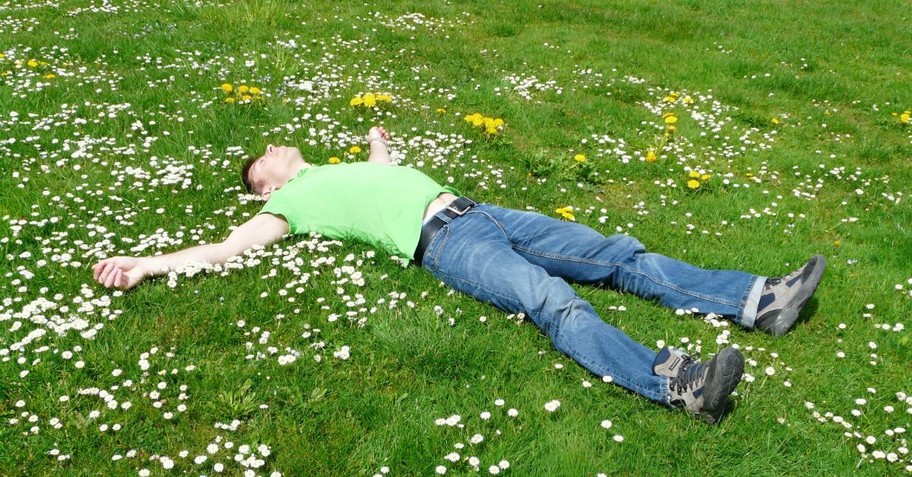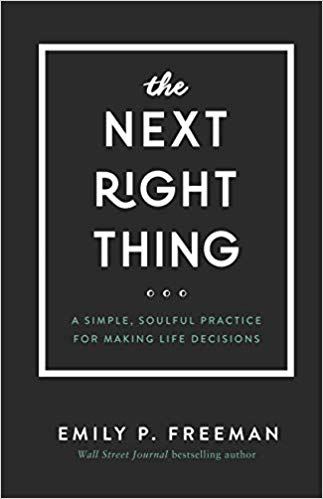Need Clarity and Peace? Try Being a ‘Soul Minimalist’

It isn’t realistic to live in a constant state of simplicity.
We are naturally complex creatures, made up of various systems: nervous, circulatory, digestive—not to mention the relationships, emotions, dreams, hurts, and desires that also shape us.
All of these are part of our human existence and not one of them is simple. Complexity has its place.
But when our souls are filled with clutter, what is meant to be complex and awe-inspiring can become complicated and exhausting. One of my favorite things Joshua Becker says about minimalism is that it’s not enough to just declutter; we have to de-own.
Photo Credit: ©GettyImages/Sam Edwards

While it’s a powerful practice to apply in your home, imagine what happens when you apply it to your soul.
Becoming a soul minimalist does not mean that you should hold on to nothing but rather that nothing should have a hold on you.
When my soul feels like that crowded gym, with lots of movement, hurry, and input, it brings peace to embrace the concept of minimalism. I can’t say what the result of this might be for you, but I can tell you for me, the best way to uncover a bit of white space in my own soul is to be still.
Photo Credit: ©GettyImages/evgenyatamanenko

Stillness is to my soul as decluttering is to my home.
Silence and stillness are how I sift through the day’s input. The silence serves as a colander, helping me discern what I need to hold on to and allowing what I don’t need to fall gently away, making space to access courage and creativity, quieting to hear the voice of God.
If you have trouble listening to your family, your body, or your soul, a good first step is to find small cracks of time to be silent and still. I know how hard this is. Author and pastor A. J. Swoboda points out that in the last ten years, we’ve gone from having a TV in our living rooms to having a TV in our pockets.
We know all the ways our phone seems intent on ruining our best efforts at silent stillness. I won’t go too far down the road of all the ways our phones have rewired our brains, and I won’t make arguments for the pros and cons of technology, but here’s what I will say: if you are carrying an unmade decision, you have to find a way to push back the distraction of your phone and allow some nothing space to fill the in-between moments.
Photo Credit: ©Pexels/Riccardo-Bresciani

There is freedom and wisdom available to you when you silence distractions.
For me, that looked like turning off all notifications.
Maybe you did this years ago, and if so, you’re already ahead of the game. You already know it’s a small step, but it’s also a tiny declaration.
Facebook, you do not get to interrupt me.
Instagram, you do not have my permission to tap me on the shoulder whenever you want to.
Headlines, I can read you all at once later. I do not need to know the moment news breaks.
Phone, you are not allowed to boss me. I have good work to do. I have a life to live. I have decisions to make.
Photo Credit: ©Thinkstock/Merlas

This mindset shift serves as a tangible invitation to your soul.
You are welcome to come out whenever you feel safe. And when you do, I’ll pay attention.
Be relentless and unapologetic with your phone. Notifications are interrupting our day, our concentration, our focus, and our ability to be present.
So let’s just ignore them on purpose.
What’s next? The specifics are up to you, but I would suggest a willingness to allow some space during the in-betweens of life where you don’t allow yourself to check your phone. Maybe a walk where you leave it behind or a whole morning where you keep it turned off. Anything to help push back the darting eyes, the constant scrolling, and the brain space we willingly sacrifice on the tiny, shiny altar of our phone screens.
Photo Credit: ©Pexels/Pixabay

We’re letting everyone else’s agenda live for free in the sacred space of our creative mind, and it’s time for an eviction.
This space is necessary for ideas to form, for questions to rise up, for hope to weave her way into our vision for the future, and for the dots of decision to begin to connect in the quiet places of our mind and heart.
Good decisions require creativity, and creativity requires space.
This space is necessary for you to speak out against the injustices you see in the world, the problems you know you can help solve, and the beauty you long to deliver.
Of course our life is filled with natural interruptions and distractions, and this is often where our real life happens. But there is a whole category of distraction we have control over, and that’s the stuff that comes from our phones.
If you would like an even more concrete plan for a technology fast, author Andy Crouch, in his book The Tech-Wise Family, follows this rule: an hour a day, a day a week, and a week a year without technology.
As you embrace your own version of becoming a soul minimalist, I hope you’ll receive the wisdom to begin to give up what you no longer need, like fear about the future or regret over the past.
I hope you’ll embrace a willingness to face the silence within and not worry so much what you may or may not hear. I hope you’ll be willing to create a little space for your soul to breathe so you can discern your next right thing in love.
This excerpt is from Chapter 2 of Emily P. Freeman’s book The Next Right Thing, Revell, a division of Baker Publishing Group, ©2019 , used by permission.

Photo Credit: ©Thinkstock/mavoimages
Originally published May 07, 2019.








